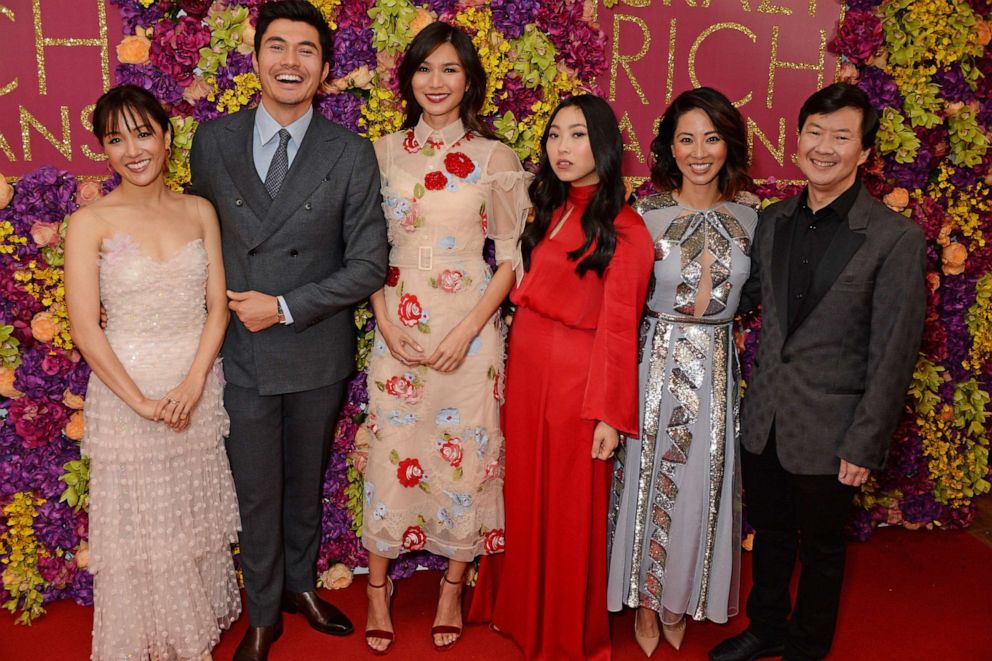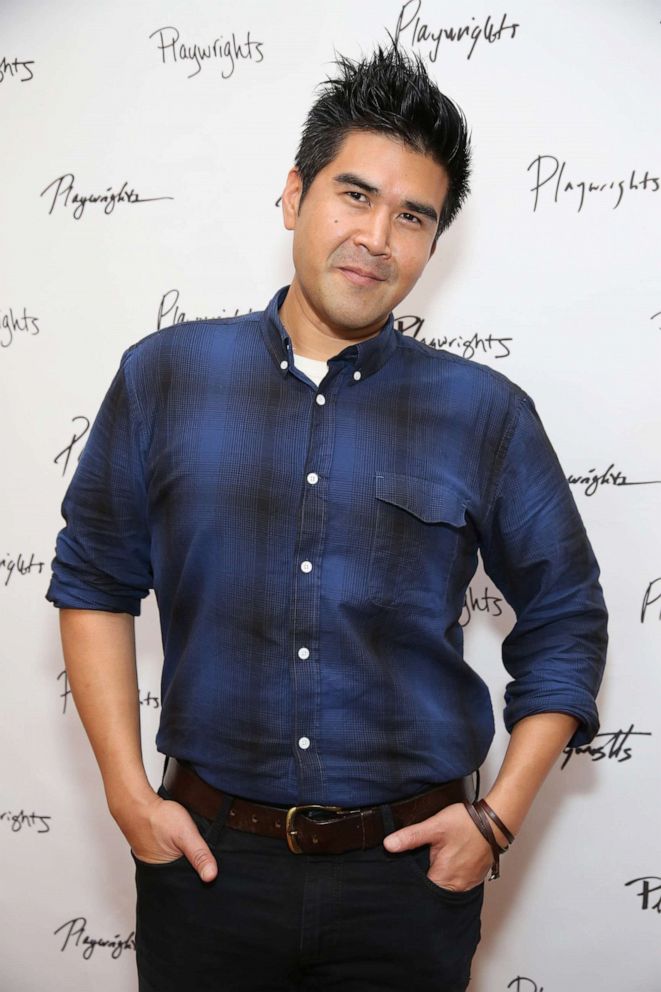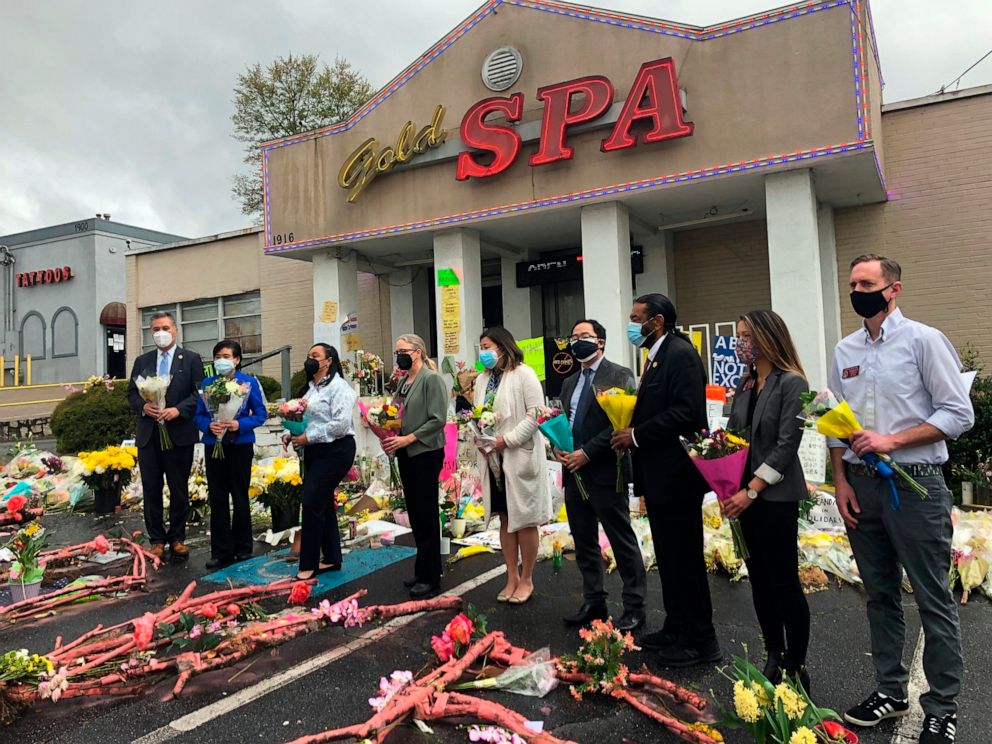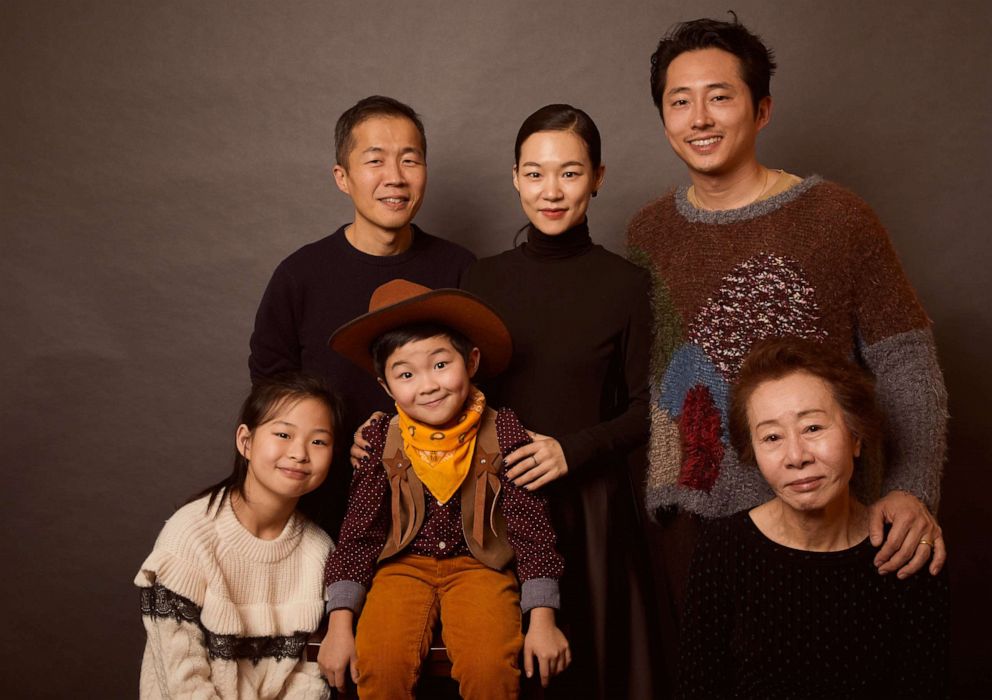Asians and Pacific Islanders battle 'invisibility' in media, Hollywood: Study
A study found that 42% of people couldn't name a famous Asian person.
The lack of Asian and Pacific Islander representation continues to be a problem in the mainstream film industry, according to a new study by the USC Annenberg Inclusion Initiative.
Looking at 51,159 speaking characters, only 5.9% were API, which falls short of the 7.1% of the U.S. population that identifies as API, according to the study.
"People are emboldened when I don't exist as a human being to them," said Sheila Ivy Traister, an actress and SAG-AFTRA Colorado local president. She is also the national vice-chair of the Asian Pacific American Media Committee at SAG-AFTRA.

Traister and other Asians and Pacific Islanders who spoke with ABC News said they have felt "invisible" in the media industry. They say their stories often go untold, and the lack of API representation in front of and behind the camera erases the community from Hollywood's portrayal of America.
"When we don't see ourselves, when we don't see a true reflection of the American scene and the human condition represented in our stories, it's too easy for others to objectify us," Traister told ABC News.
Scarce representation
Roughly 40% of all movies failed to depict an Asian character, according to the study. The report also found there was no Pacific Islander represented in 94.2% of the films, and only 3.4% of the films had an API lead or co-lead.
Pun Bandhu, an actor and member of the Asian American Performers Action Coalition, said the way API characters are pushed into the background of primarily white storylines is a reflection of the way Asians and Pacific Islanders are treated in America.
"The lead is who you empathize with; the lead is the person who holds the emotional content of the story," said Bandhu. "Because of that, [API characters] are reduced to being information givers, people who progress the plot along, but are never really what the story is about. We are in service of the larger central story, which is usually a white storyline."

'Perpetual foreigners' and 'dragon ladies'
Non-stereotypical API roles are rare in the film industry. These characters are typecast in harmful stereotypes, according to the USC Annenberg study.
Asian and Pacific Islanders are typically portrayed as "perpetual foreigners," who can't assimilate to American culture, have strong non-U.S. accents and commit crimes or play the villain. Portraying API people "others" the people of the community, and alienates them from existing among the rest of the community, the study found. API women, according to the study, were also commonly cast as prostitutes, sexual beings and "dragon ladies."
API media representatives fear that these stereotypes could play a role in the rise in hate crimes and bias incidents against Asians and Pacific Islanders.
The pandemic has stoked fear and hate against the API community, since authorities have speculated whether the pandemic began in Wuhan, China. From the start of the COVID-19 pandemic until March 31, the group Stop AAPI Hate tracked 6,603 incidents that are believed to be motivated by anti-Asian hate.
Traister said the fear of Asians has been heightened, but can be traced back to the perceptions of Asians in the media as "foreigners" who are "othered" or portrayed as un-American,
"What we don't know or understand we fear," said Traister. "Unfortunately, when you have people in power who continuously perpetuate a perception of any particular race or class of people, those who are uninformed will follow and listen to those misrepresentations."
Bandhu said that the historical perceptions and sexualization of API women in media can be linked to attacks like the Atlanta spa shootings. Alleged gunman Robert Aaron Long, who is white, killed eight people, six of whom were Asian women. Police said Long blamed the massage parlors for providing an outlet for his "sexual addiction," though he allegedly denied a racial connection.
"It is this dehumanization process that then allows a mass murderer in Atlanta to claim that these masseuses were tempting him," Bandhu said. "There's a direct line between those stereotypes and how violence is able to attach itself against a group of people."
Long has been indicted on 19 counts, including murder and aggravated assault. The prosecutor on the case is seeking hate crime charges as well. He is being represented by Georgia defense attorney J. Daran Burns, of the Burns Law Firm.
"Our firm has been in Cherokee County for twenty-five years, and when tragedy happens in our community, we feel it," Burns said in a statement to The Atlanta-Journal Constitution. "Our condolences are with the victims and their families. We are working on behalf of our client, Robert Aaron Long, to investigate the facts and circumstances surrounding this incident."
While Long's name made headlines following the shooting, Bandhu wished there was more focus on the stories and lives of the Asian women.

Danger of the 'model minority' stereotype
Another stereotype, the "model minority," also persists among Asian roles. The model minority myth portrays Asian and Pacific Islanders as highly successful people who don't need help or assistance, and are quiet, law-abiding and are naturally gifted. Oftentimes, API roles consist of doctors, scientists or some other STEM-based career. But according to the Pew Research Center, Asians have the biggest gap in income inequality.
Research shows that the top 10% of Asians earn 10.7 times more than the Asians in the bottom 10%.
Masashi Niwano, festival and exhibitions director for the Center for Asian American Media, told ABC News that "the model minority method is dangerous on many levels."
"It represents Asian Americans as being overachievers," Niwano said. "That means legislatively, that we're not getting any support because people think we don't need it. ... When you say the entire Asian American community is successful, it leaves so many people behind."
Traister said that if it wasn't for the younger generations who are standing up for their elders amid the onslaught of recent attacks, crimes against the Asian community may still have gone unnoticed.
"I was taught to keep my head down," said Traister. "I should barely be seen, let alone heard. I dealt with racism before I ever went into school, and the whole thing was to stay out of trouble, stay out of the way, don't incur problems."
A simple way to fix the issues of representation and awareness is to have Asians and Pacific Islanders telling their stories, according to Michelle Yun Mapplethorpe, the director of Asia Society Museum.
"They treat the AAPI community as a monolithic minority without understanding the nuances and vast differences across the region of Asia," Yun Mapplethorpe said. Her work at the Asia Society focuses on highlighting art from Asian creators and ensuring that a diverse picture of Asia and Asian cultures is represented to visitors at the museum.

Yun Mapplethorpe hopes Hollywood can soon do the same. Of the 1,447 directors featured in the USC Annenberg study, only 3.5% were API. Only 2.5% of producers were API and only 3.3% were casting directors.
But when there were API directors and producers making decisions behind the camera, the study showed that their films featured more API leads and co-leads. Casting directors also chose more API talent for speaking roles on screen than their non-API counterparts.
Leanne Kaʻiulani Ferrer, executive director of Pacific Islanders in Communication, said that more representation behind the camera is just as important as seeing more API faces on the big screen. She talked about the "ohana," a Hawaiian term for family, of the API community, and the importance of supporting one another to further API representation in Hollywood, in the media, and beyond.
"It starts with the strength of a family and then that strength can move outward to help the community grow and to find a sense of place wherever we are," said Ferrer.
Niwano said that films, TV shows and news media may be how a lot of non-API people learn about and see the community. Though he runs a film festival to highlight the voices of his community and other marginalized groups, he said Hollywood needs to take responsibility.
"If we continue to leave Asian Americans out of the American narrative or put them on the sidelines or make Asian Americans a joke or a villain, we will continue to see people who don't have any connections with Asian Americans looking at us as the enemy," Niwano said.




